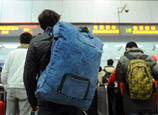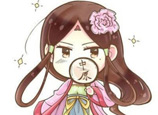
Key Words:China Model; Western universal values; 'China threat' theory; hegemonism; China; U.S.
Realted Reading:
>>China will never seek hegemony or engage in expansion
>> China is a reliable cooperation partner: Official
>>Chinese official makes three-point proposal to boost cooperation in Asia
>>China will never allow external interference, says white paper
Universal values have suddenly become synonymous with Western hegemony. It is just like the concept of civilization. Developed countries have claimed themselves as civilized countries, and become the authoritative judge of "good," so the Roman Empire was described as being overrun by barbarians. In the modern era, Europeans have equated modernity with universality.
After the torch of Western civilization was passed to the United States, universal values have been used more frequently to ensure U.S. hegemony.
The rise of China and other emerging economies have dealt a major blow to Western universal values, resulting in various versions of the "China threat" theory.
Version one of the "China threat" theory: China's development is unsustainable because it does not have the core values that Europe owns. Therefore, the West has paid great attention to human rights and democracy in China, and hopes to inject Western core values into the country.
Version two of the "China threat" theory: China has its own core values which are not universal, and denies the existence of universal values, so it has become an arch enemy of Western universal values.
Version three of the "China threat" theory: China has introduced values such as the "China Model" similar to Western universal values, and actively promoted its values to replace the dominant European values. Europeans are thus worried what if China rules the world someday.
China faces a "trilemma" under the universal values-led hegemonic system, and is considered as a major threat to the West no matter whether it has core values or how it treats universal values.
 |
















 Extinction of river dolphin: What does it mean for the Yangtze River?
Extinction of river dolphin: What does it mean for the Yangtze River?


![]()
